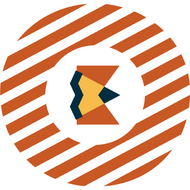Storytelling: A Way to Introduce and Express Oneself
(View Complete Item Description)Storytelling: A Way to Introduce and Express Oneself “Storytelling is a tool to express who you are, an avenue to share a memory or experience, a medium to teach values and cultural differences….Storytelling is by far the best to communicate one’s thoughts and tell one’s story” (Keaise, 2014, p. 53). This OER shows how one professor incorporated storytelling into student introductions. Additionally, this exercise was used as part of the pedagogy to teach about human diversity, culture, understanding and acceptance. Storytelling provided an effective foundation for students to connect with classmates, build relationships and develop trust and respect, the foundation behaviors of good human relations. Materials which will be included in the OER are listed below: 1) A brief literature review on storytelling, supporting this exercise;2) A visual diagram and brief description of the storytelling process which includes a dyadic encounter, small group discussions and a large group presentation; 3) Step-by-step instructions on how to integrate storytelling into student introductions; 4) Examples of student introductions; 5) A summary of student perceptions about the storytelling exercise.
Material Type: Activity/Lab





